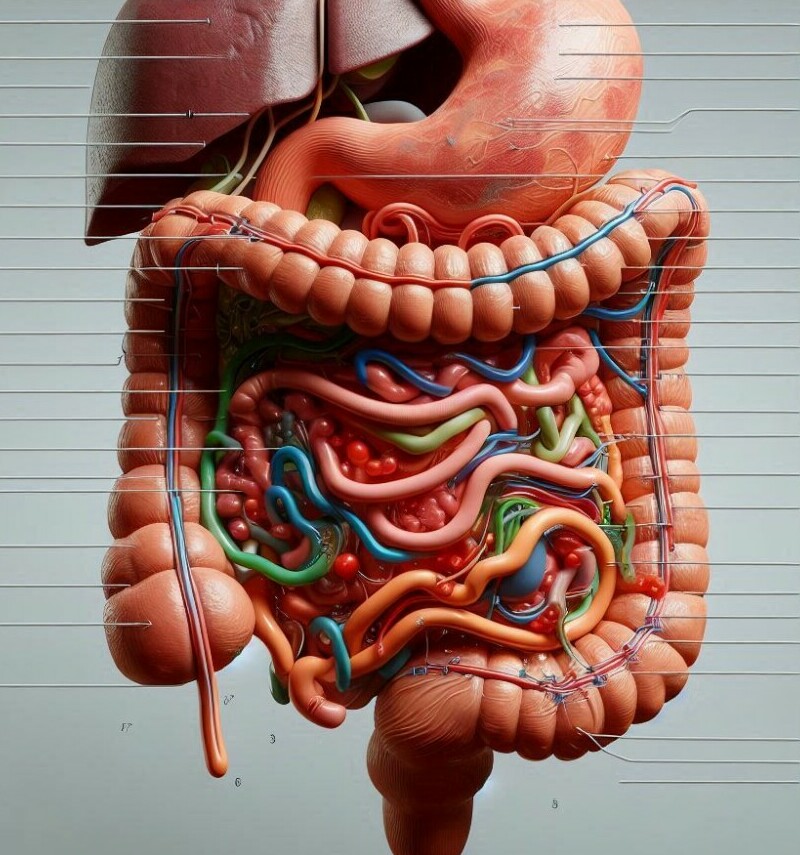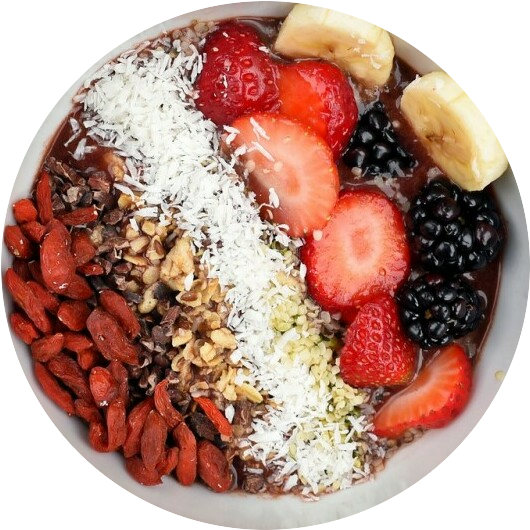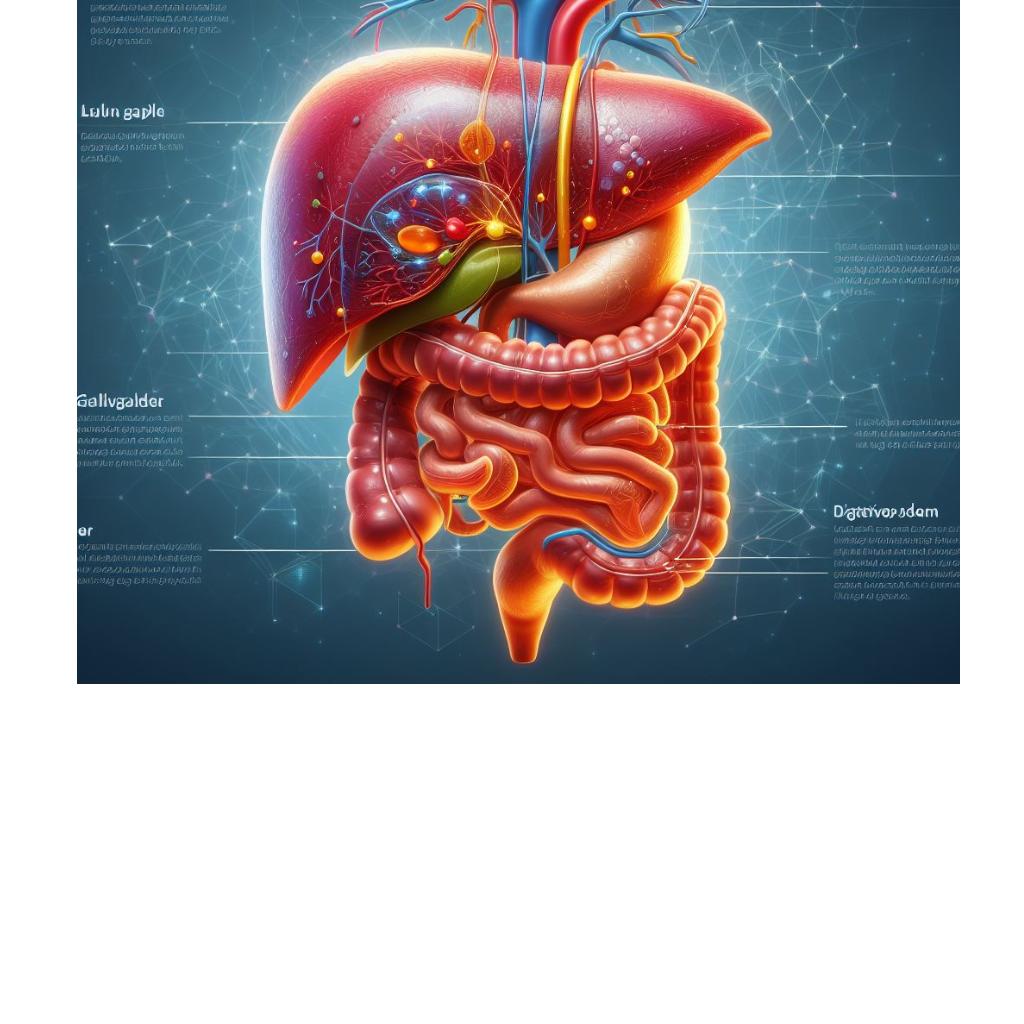
Gut health is integral to overall well-being, influencing everything from digestion to mental health. Understanding how to maintain a healthy gut can lead to transformative health benefits for beginners. This guide will provide essential tips and insights to help you embark on your journey to better digestive health.
Think of your gut not just as a pathway for your meals but as a central hub for health. Its complex network of organs that begins with your mouth, throat, esophagus, stomach, intestines, rectum, and anus. The digestive system transforms food into nutrients and directs waste towards the exit.
Understanding the roles of the two major organs in our digestive system highlights their indispensable contributions to our health and daily functioning. Focusing on two major organs:
- Small Intestine:
- Acts as the nutrient-absorbing hero.
- Key role in absorbing nutrients from food.
- Large Intestine:
- Specializes in water absorption.
- Transforms waste.
- Essential for daily functioning.
Your gut is home to a bustling community: the microbiome. Picture trillions of microorganisms, mainly bacteria, working in harmony like a bustling city to keep your digestive system flourishing. These tiny citizens are multitaskers—they bolster your immune defenses, break down potentially harmful foods, and transform parts of your diet into essential nutrients.
A balanced microbiome is like your body’s defense attorney, warding off unsolicited pathogens and underlining the need for healthy gut upkeep. With these insights, it’s clear that gut health is more than just avoiding an upset stomach—it’s about maintaining a thriving internal ecosystem.
Building a Gut-Healthy Diet

A diverse and balanced diet is the cornerstone of good gut health. Here are some dietary tips to help you nurture your gut:
Focus on Fiber
Fiber is essential for a healthy gut as it feeds the beneficial bacteria in your microbiome. Incorporate various fiber-rich foods, such as whole grains, fruits, vegetables, legumes, nuts, and seeds. Aim for at least 25-30 grams of fiber per day.
- Whole Grains: Oats, quinoa, and brown rice
- Fruits: Apples, bananas, and berries
- Vegetables: Broccoli, carrots, and Brussels sprouts
- Legumes: Lentils, beans, and chickpeas
- Nuts and Seeds: Almonds, chia seeds, and flaxseeds
Here’s a quick tip: Start by inspecting your plate. Is half of it filled with vegetables and fruits? Are there whole grains? Including these can be a simple way to start nurturing your gut microbiome
Include Fermented Foods
Fermented foods are rich in probiotics, which are beneficial bacteria that support gut health. Regular consumption of these foods can help maintain a balanced microbiome.
- Yogurt: Opt for plain, unsweetened yogurt with live cultures
- Kefir: A fermented milk drink packed with probiotics
- Sauerkraut: Fermented cabbage that is rich in probiotics and fiber
- Kimchi: A spicy Korean fermented vegetable dish
- Kombucha: A fermented tea with probiotics
- Miso: A fermented soybean paste used in Japanese cuisine
Grasping the way your food intake affects the gut’s microbiome is fundamental. The foods in your meals can either encourage the growth of beneficial bacteria or promote harmful bacteria. It isn’t a matter of dodging illness; it’s a proactive measure to foster a thriving digestive ecosystem.
Adopting a gut-healthy diet doesn’t mean depriving yourself of all the foods you love. It’s about balance and patterns. Moderate your intake of foods that upset your gut’s social harmony, which often includes excessive sugars, artificial sweeteners, processed snacks, and fatty meats.
As for actionable advice, consider swapping a sugary drink for water or perhaps an herbal infusion in your daily routine. Small steps like these can lead to significant differences in your gut health over time.
Understanding the Gut Microbiome

Your gut microbiome is a complex community of trillions of microorganisms, including bacteria, viruses, and fungi. These microbes play a crucial role in digestion, immune function, and overall health. Maintaining a balanced microbiome involves nurturing the beneficial bacteria and minimizing factors that disrupt this balance.
Probiotics and Prebiotics
Probiotics are live beneficial bacteria found in certain foods and supplements, while prebiotics are non-digestible fibers that feed these bacteria. Including both in your diet can enhance gut health.
- Probiotic Sources: Yogurt, kefir, sauerkraut, kimchi, miso, and kombucha
- Prebiotic Sources: Garlic, onions, leeks, asparagus, bananas, and whole grains
Benefits of a Balanced Microbiome
A healthy gut microbiome can improve digestion, boost the immune system, enhance mental health, and reduce the risk of chronic diseases such as obesity, diabetes, and inflammatory bowel disease.
Hydration and Gut Health
Staying hydrated is crucial for maintaining gut health. Water aids digestion, nutrient absorption, and the removal of waste products from the body. Aim to drink at least 8 cups (64 ounces) of water daily, and more if you are physically active or live in a hot climate.
- Tips for Staying Hydrated:
- Carry a reusable water bottle with you
- Set reminders to drink water throughout the day
- Infuse your water with fruits or herbs for added flavor.
Regular Physical Activity
Exercise is beneficial for both physical and mental health, including gut health. Regular physical activity can help regulate bowel movements, reduce inflammation, and promote a healthy microbiome.
- Types of Exercise:
- Cardiovascular Activities: Walking, running, cycling, and swimming
- Strength Training: Weight lifting, resistance band exercises, and bodyweight exercises
- Flexibility and Balance: Yoga, Pilates, and tai chi
- Tips for Incorporating Exercise:
- Aim for at least 150 minutes of moderate-intensity exercise per week
- Find activities you enjoy to stay motivated
- Incorporate physical activity into your daily routine, such as taking the stairs or walking during breaks.
Managing Stress
Chronic stress can negatively impact gut health, leading to issues such as irritable bowel syndrome (IBS) and leaky gut syndrome. Managing stress through various techniques can support a healthy gut.
- Stress Management Techniques:
- Mindfulness Meditation: Practice mindfulness to stay present and reduce stress
- Deep Breathing Exercises: Use deep breathing techniques to calm your mind and body
- Yoga and Tai Chi: These practices combine physical movement with relaxation techniques
- Physical Activity: Exercise can help reduce stress and improve mood
- Adequate Sleep: Ensure you get 7-9 hours of sleep per night to support stress management and overall health
Sleep and Gut Health
Quality sleep is essential for maintaining a healthy gut. Poor sleep can disrupt the balance of your gut microbiome and contribute to digestive issues.
- Tips for Improving Sleep Quality:
- Stick to a regular sleep schedule
- Create a relaxing bedtime routine
- Avoid screens and electronic devices before bed
- Make your sleep environment comfortable and conducive to rest
- Limit caffeine and heavy meals close to bedtime
Avoiding Unnecessary Antibiotics
Antibiotics can be life-saving, but their overuse can disrupt your gut microbiome by killing beneficial bacteria. Use antibiotics only when prescribed by a healthcare professional and follow their instructions carefully.
- Tips for Minimizing Antibiotic Use:
- Follow your doctor’s recommendations for antibiotic use
- Avoid requesting antibiotics for viral infections, such as colds or flu
- Maintain good hygiene to reduce the risk of infections
- Support your immune system with a healthy diet, regular exercise, and adequate sleep
Understanding the Risks of Poor Gut Health

What you eat profoundly affects your gut – that’s worse. But what happens when the food choices veer off the path of nutrition into the domain of poor dietary patterns? The ramifications go beyond a mere upset stomach. Let’s look soberly at poor nutrition and its relation to gut health.
Dysbiosis, a term for the microbial imbalance in your gut, is often a consequence of diets high in added sugars and saturated fats. This misalignment can trigger chronic inflammation. Picture inflammation not as a temporary visitor but as an unwelcome tenant in your body, causing many issues if not addressed.
You’ve probably heard that inflammation is at the root of many health problems. This isn’t an overstatement. When inflammation becomes chronic due to ongoing dysbiosis, it’s a slow-burning fire that has the potential to lead to heart disease, diabetes, and obesity.
A condition that hits close to home for many is colorectal cancer. Why should this concern you? Because the evidence suggests a strong link between diet and this serious disease. The foods that damage your gut flora can, in the long term, increase your risk of developing colorectal cancer.
With these risks exposed, your next step is to prevent such circumstances. A healthy gut doesn’t fend off diseases; it supports a robust immune system and contributes to overall health and happiness. So, prevention is not merely about avoiding the bad but embracing practices that foster good health.
Evidence-based Steps to Begin Your Gut Health Journey
- Start with small, incremental changes for better gut health.
- To nurture beneficial gut microbes, add more fibrous foods like fruits, vegetables, and whole grains to your meals.
- Make dietary adjustments that feel manageable and personal to you.
- Include probiotic-rich foods such as yogurt or kefir to support good bacteria in your gut.
- Try prebiotic foods that act as food for beneficial gut microbes, promoting diversity in your microbiome.
- Consult a healthcare provider or dietitian for a personalized plan to improve your gut health.
- Keep a food diary or use apps to track your diet and its impact on your digestive comfort.
- Understanding the connection between diet and digestive health empowers you to make healthier daily choices.
Conclusion
Improving your gut health involves a holistic approach that includes a balanced diet, regular physical activity, stress management, proper hydration, and adequate sleep. Incorporating these tips into your daily routine can support a healthy digestive system and enhance your overall well-being. Start implementing these strategies today to take control of your gut health journey.


This is an excellent guide to something everyone needs to cultivate. Dysbiosis is incredibly painful and uncomfortable, so I’m glad you warned against letting it occur. I eat fibre daily to keep me regulated, but I was wondering what you think about organic fibre as opposed to non-organic. I can really feel the difference! So, I insist on organic grains and beans. I would love to hear your view on this.
Thank you for your kind words and for sharing your experience! I agree that organic fiber can feel gentler on the digestive system due to fewer chemical residues and potentially higher nutrient content. However, I understand that not everyone can afford organic options. Consuming non-organic fiber is better than not at all, as it still provides significant benefits for gut health.
Thank you for your insightful comment, and I look forward to more discussions on maintaining a healthy gut!
Best regards,
Zahra
This article on gut health tips for beginners is spot on! As someone who has been focusing on gut health for years, I found the advice here incredibly practical and easy to follow. The emphasis on incorporating high fiber foods, staying hydrated, and including probiotics like yogurt and kefir has made a noticeable difference in my overall well-being. Understanding the important role of a balanced microbiome has been transformative. Thanks for such a comprehensive and accessible guide to gut health!
Kind Regards,
kaleem
Hi Kaleem,
Thank you for your kind words! I’m glad to hear that the tips have been helpful in your gut health journey. It’s wonderful to know that incorporating high-fiber foods, staying hydrated, and adding probiotics has positively impacted your well-being. Your experience with a balanced microbiome is inspiring. Thanks for sharing and for your support!